Gallery 101: Julie and Edward J. Minskoff Gallery
Gallery 102: William and Linda Demmer Gallery
About the Exhibition
What does it mean to say a woman is “unbecoming”?
unbecoming is a survey of paintings and sculptures by Diana Al-Hadid that questions how constructions of femininity take form over time, a development that can be understood in part by thinking through Al-Hadid’s research and artistic process. The artist’s reworking of materials and form is a process that models how we can similarly transform the social expectations about womanhood and women’s behavior to instead find the power in being “unbecoming.”
Based in New York, Al-Hadid works prolifically between painting, sculpture, and more recently, handmade paper. Born in Syria in 1981, Al-Hadid moved to the United States as a child. She grew up in Ohio, earned a Bachelor of Fine Arts from Kent State University, and a Master of Fine Arts from Virginia Commonwealth University. Al-Hadid’s work draws on diverse sources ranging from art history to Greek mythology, and global literature. Her visual language emerges from an astute sense of materiality that culminates in specific abstractions; these works defy how we think about both materials and sculpture and in turn, work to unravel the ways of thinking we may see as “normal.”
Gender and womanhood are important yet often overlooked aspects of Al-Hadid’s work. A few of the many subjects the artist addresses include Hans Memling’s painting Allegory of Chastity (1475), which features a woman with a mountain built around her guarded by lions to protect her virtue and modesty. Al-Hadid also references Medusa, a woman in Greek mythology who has snakes for hair, often seen as the epitome of “unbecoming” because of both her temperament and her appearance. These are two examples of many in Al-Hadid’s work that illustrate how different art historical and mythological sources hold ideals about femininity that remain relevant to conversations about what it means to be a woman today.
Al-Hadid invites us to look closely and consider how the materials in her work both break down and accumulate into their final form. In turn, we are prompted to reflect on how expectations about womanhood and femininity are similarly constructed but they can also be deconstructed to imagine different futures.
unbecoming is organized by the Eli and Edythe Broad Art Museum at Michigan State University and curated by Dr. Rachel Winter, Assistant Curator, with support from Laine Lord, former Curatorial Research Assistant. Support for this exhibition is provided by the Eli and Edythe Broad Endowed Exhibitions Fund. Support for the accompanying publication Diana Al-Hadid: unbecoming is made possible by Kasmin Gallery, Lisa Applebaum, and April Clobes. The museum also extends a special thanks to Kasmin Gallery, New York, and Dieu Donné. Dieu Donné is the leading non-profit cultural institution dedicated to serving emerging and established artists through the collaborative creation of contemporary art using the process of hand papermaking.
Dieu Donné is the leading non-profit cultural institution dedicated to serving emerging and established artists through the collaborative creation of contemporary art using the process of hand papermaking. Since 1976, Dieu Donné has introduced artists to the untapped potential of hand papermaking as an art medium. Through extensive collaborations with Master Papermakers, Dieu Donné works with artists from a wide variety of practices to explore the creative possibilities in hand papermaking – fostering experimentation and producing innovative works of art. Dieu Donné strives to teach a new visual language, providing a transformative experience that often leads to artistic breakthroughs.
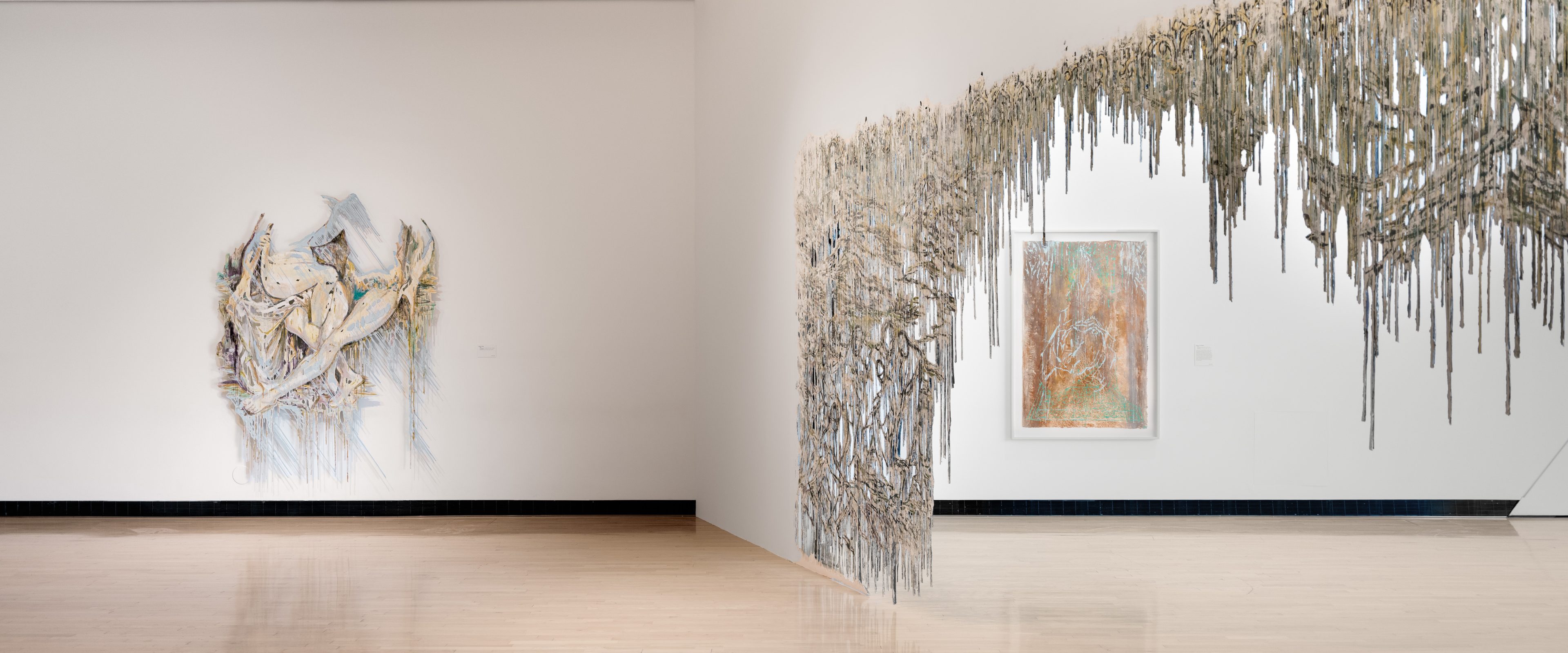
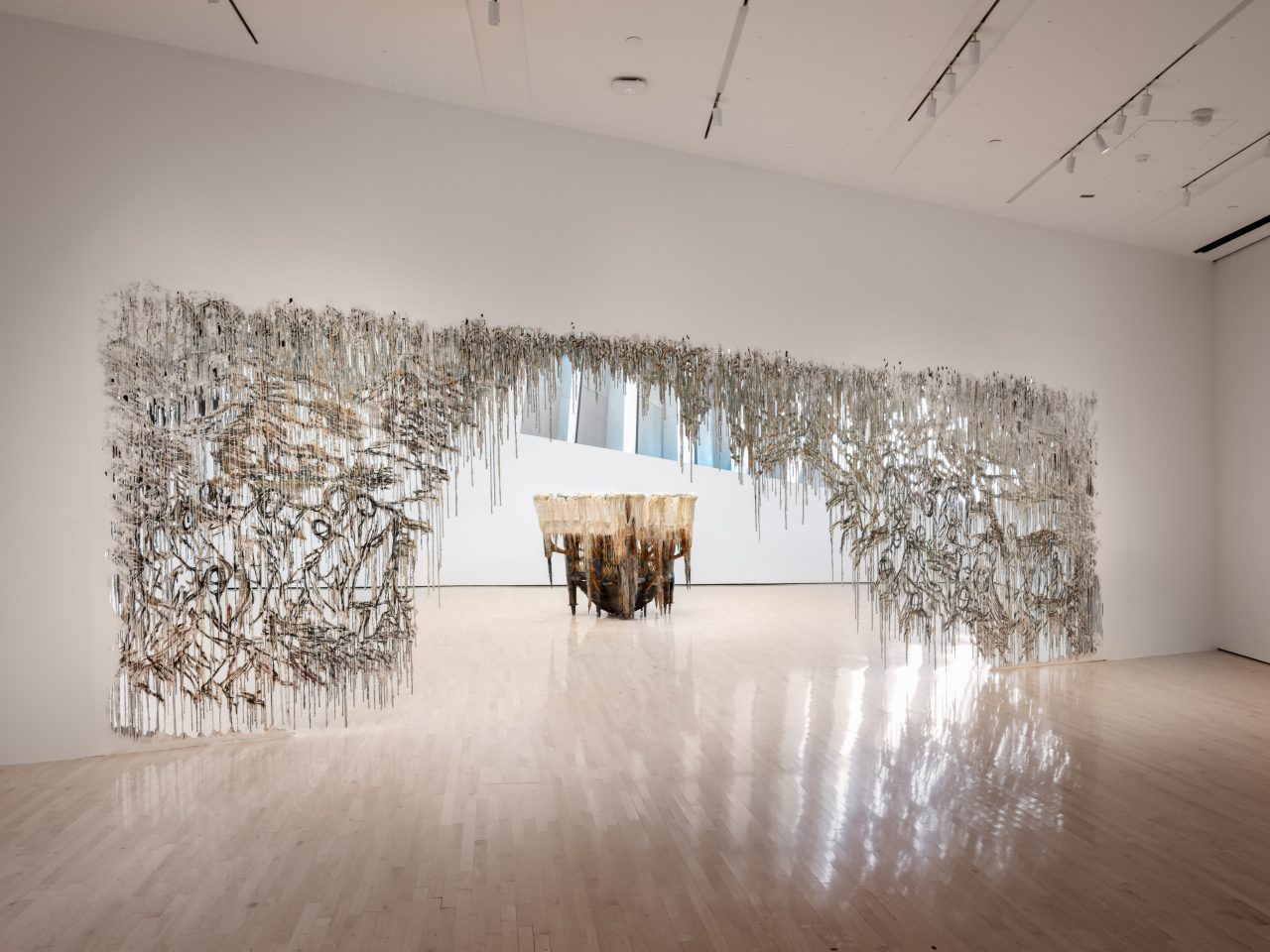
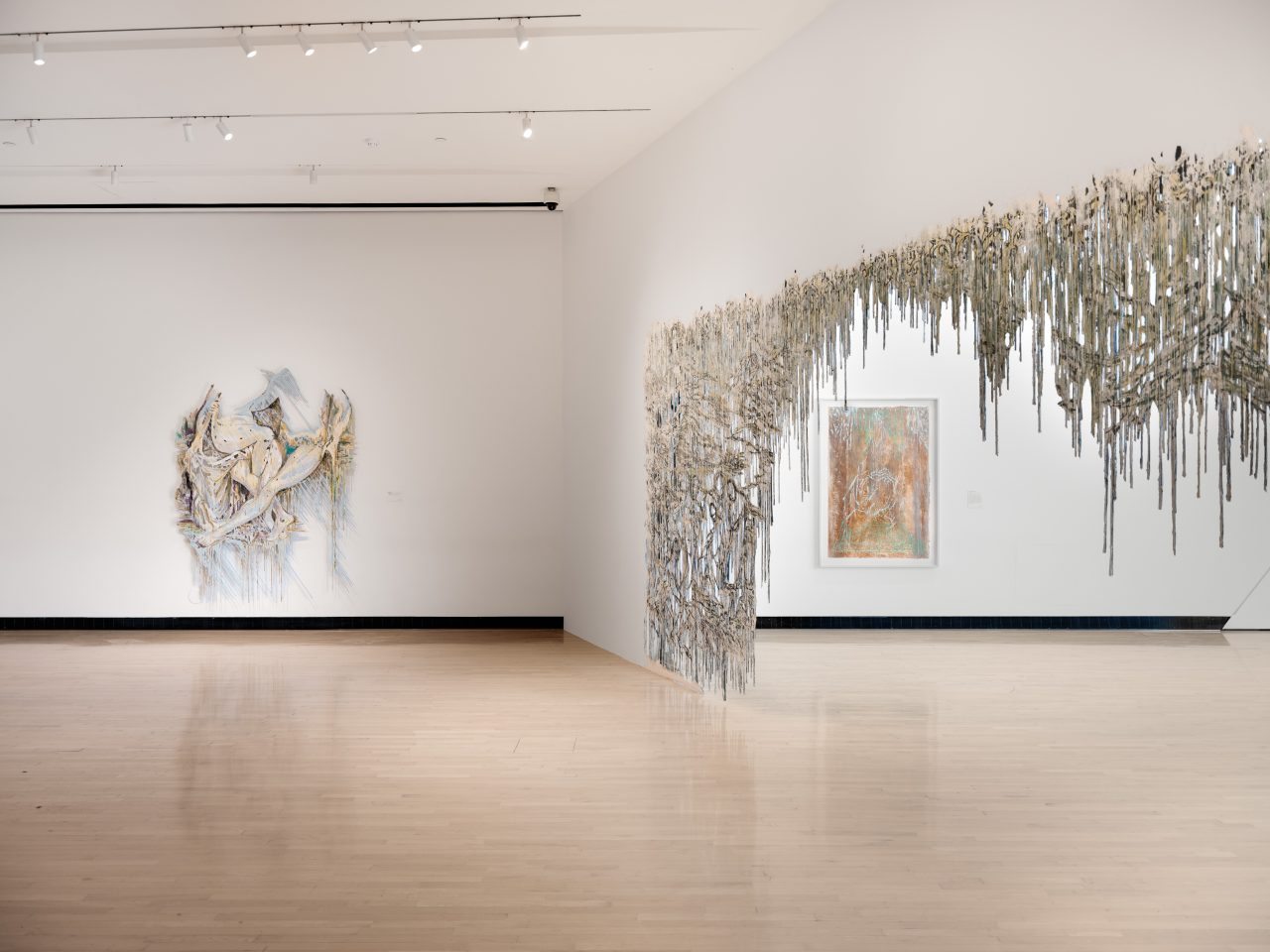
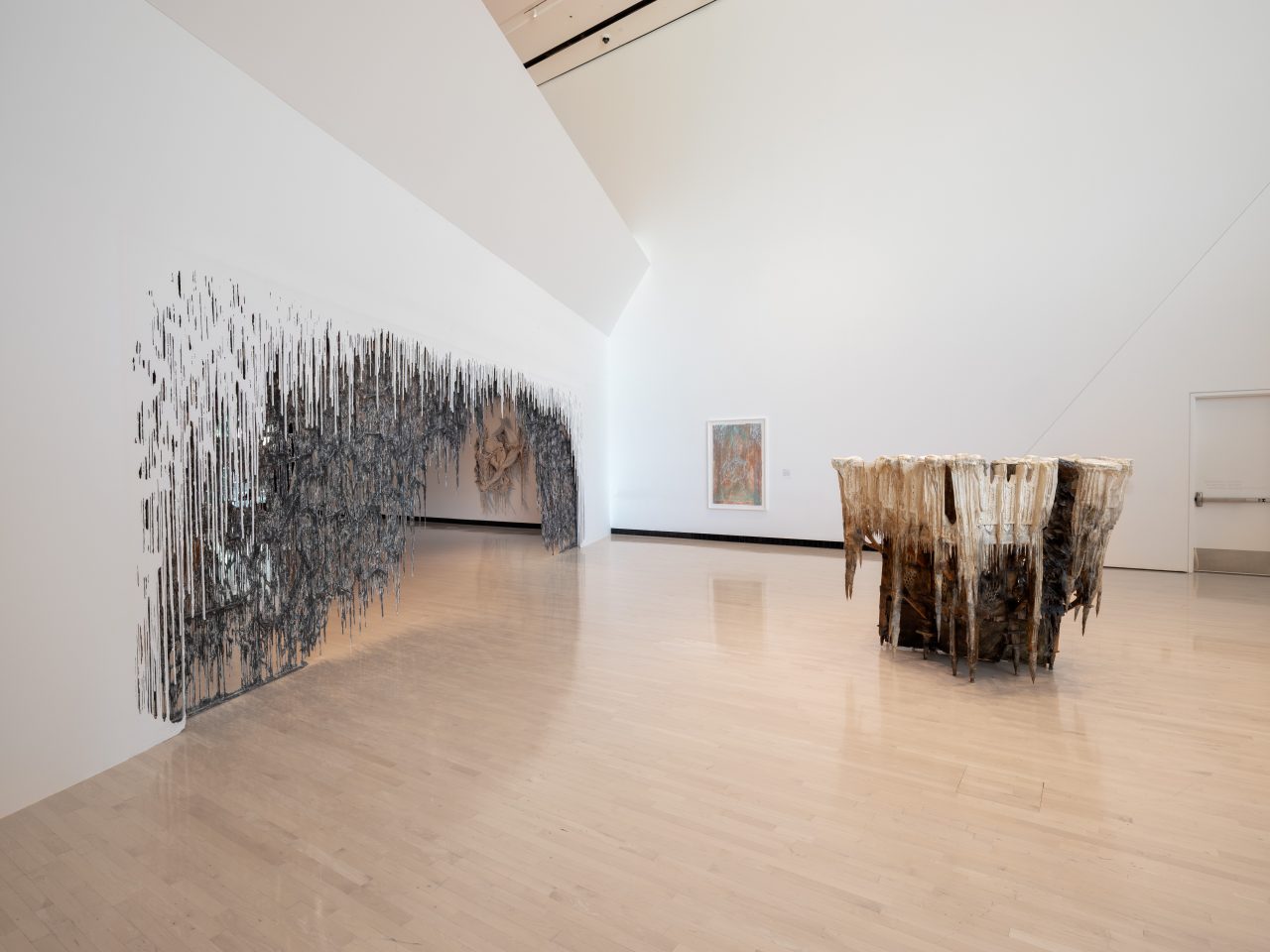
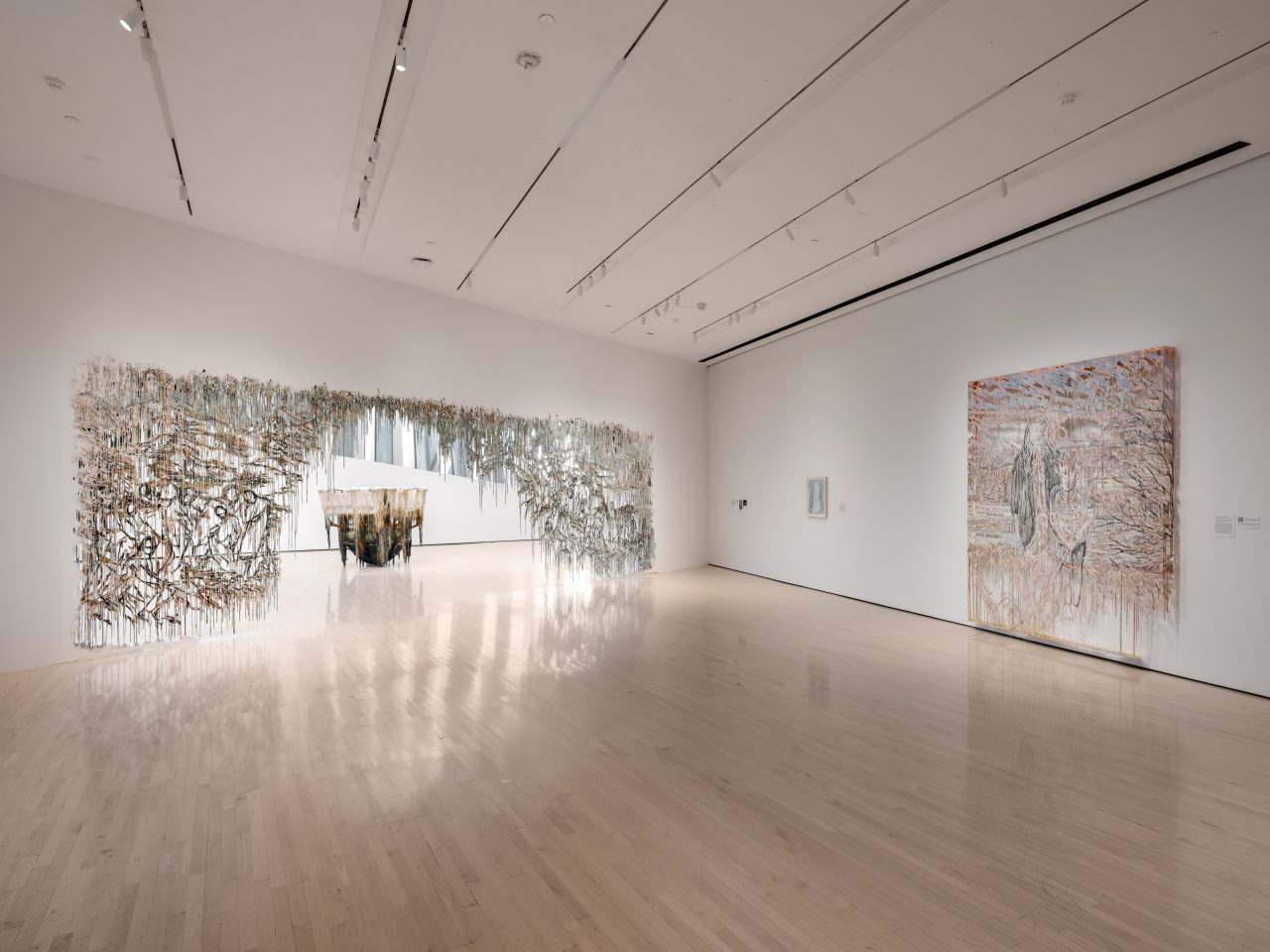
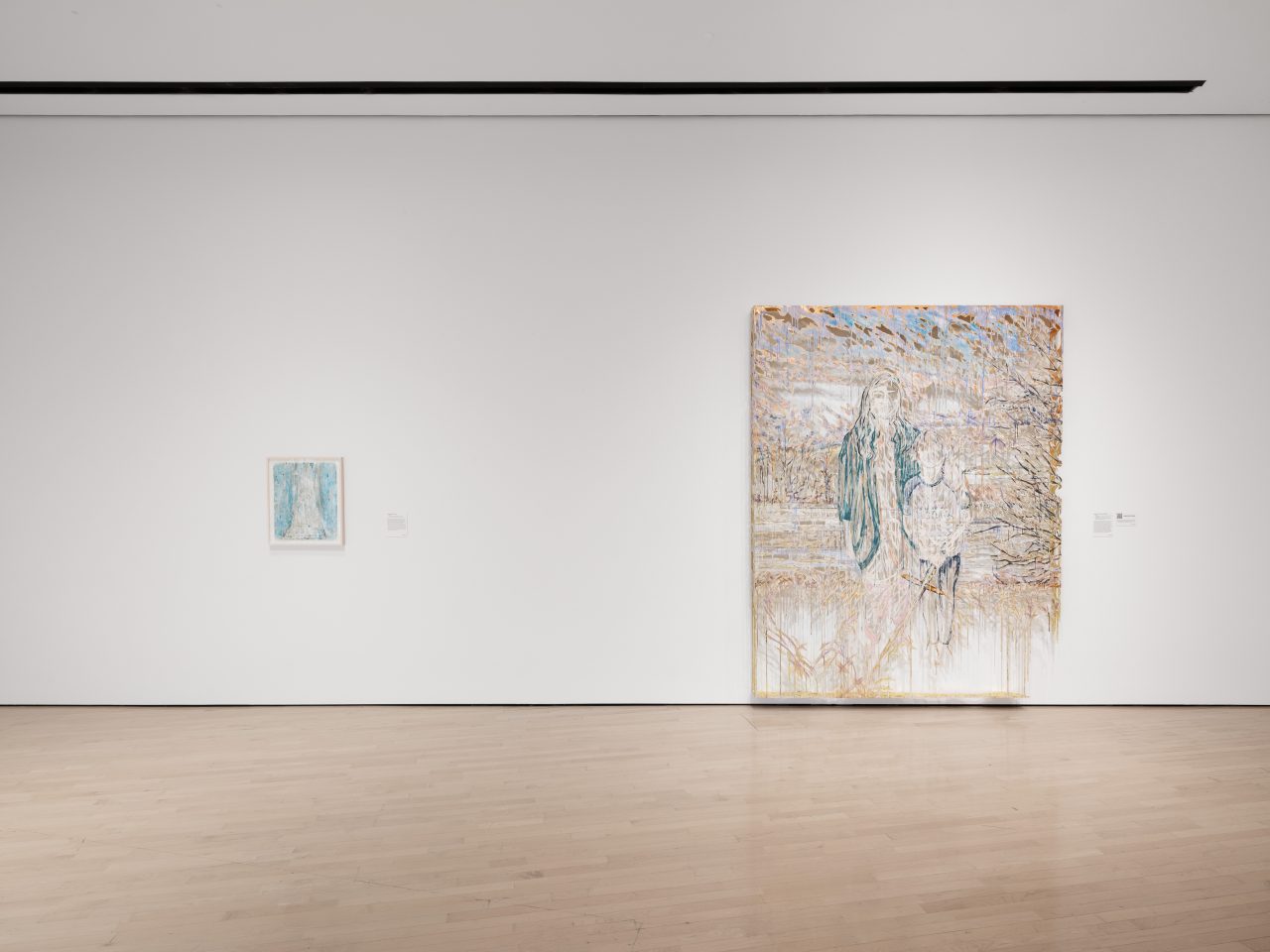
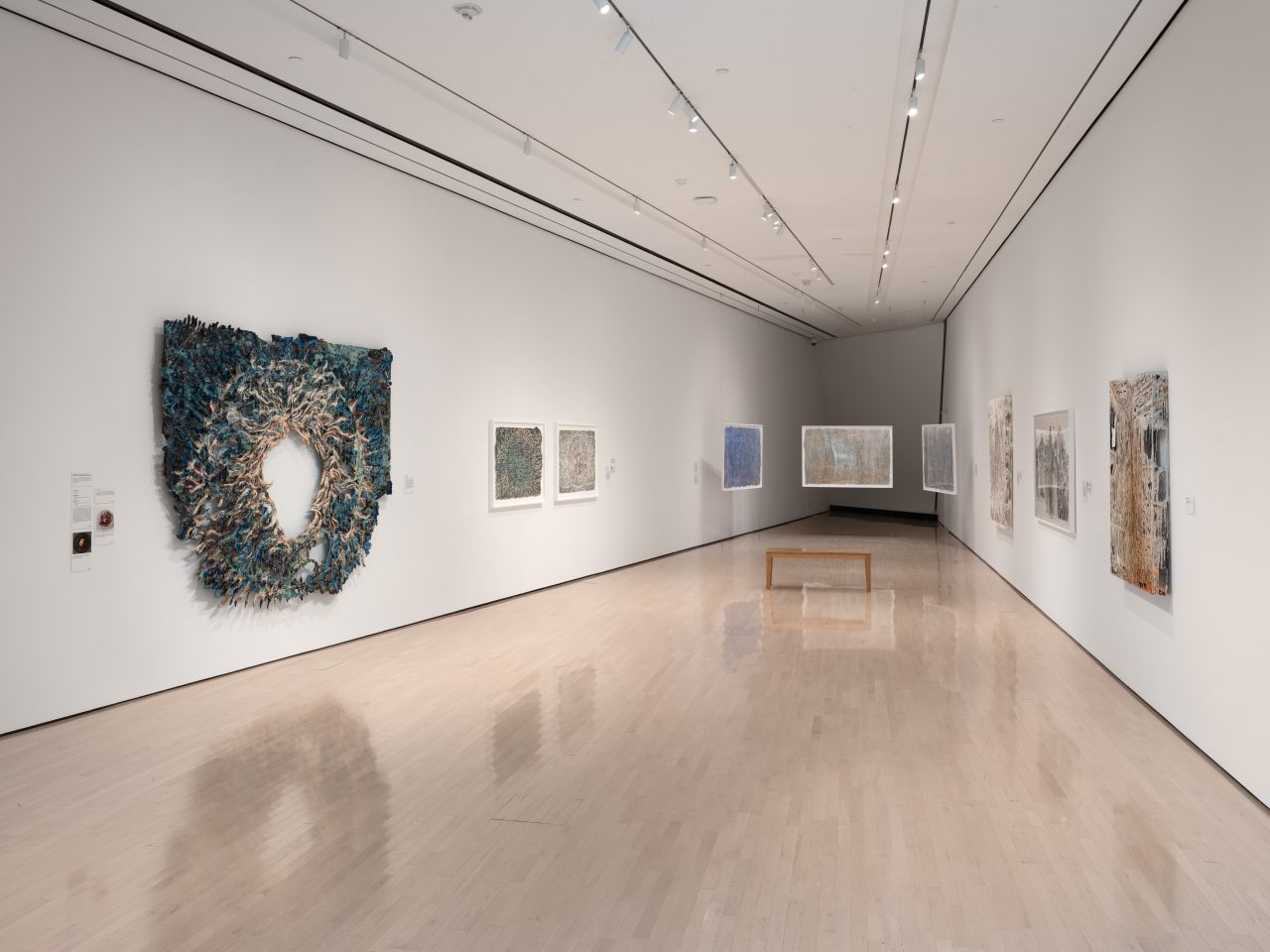
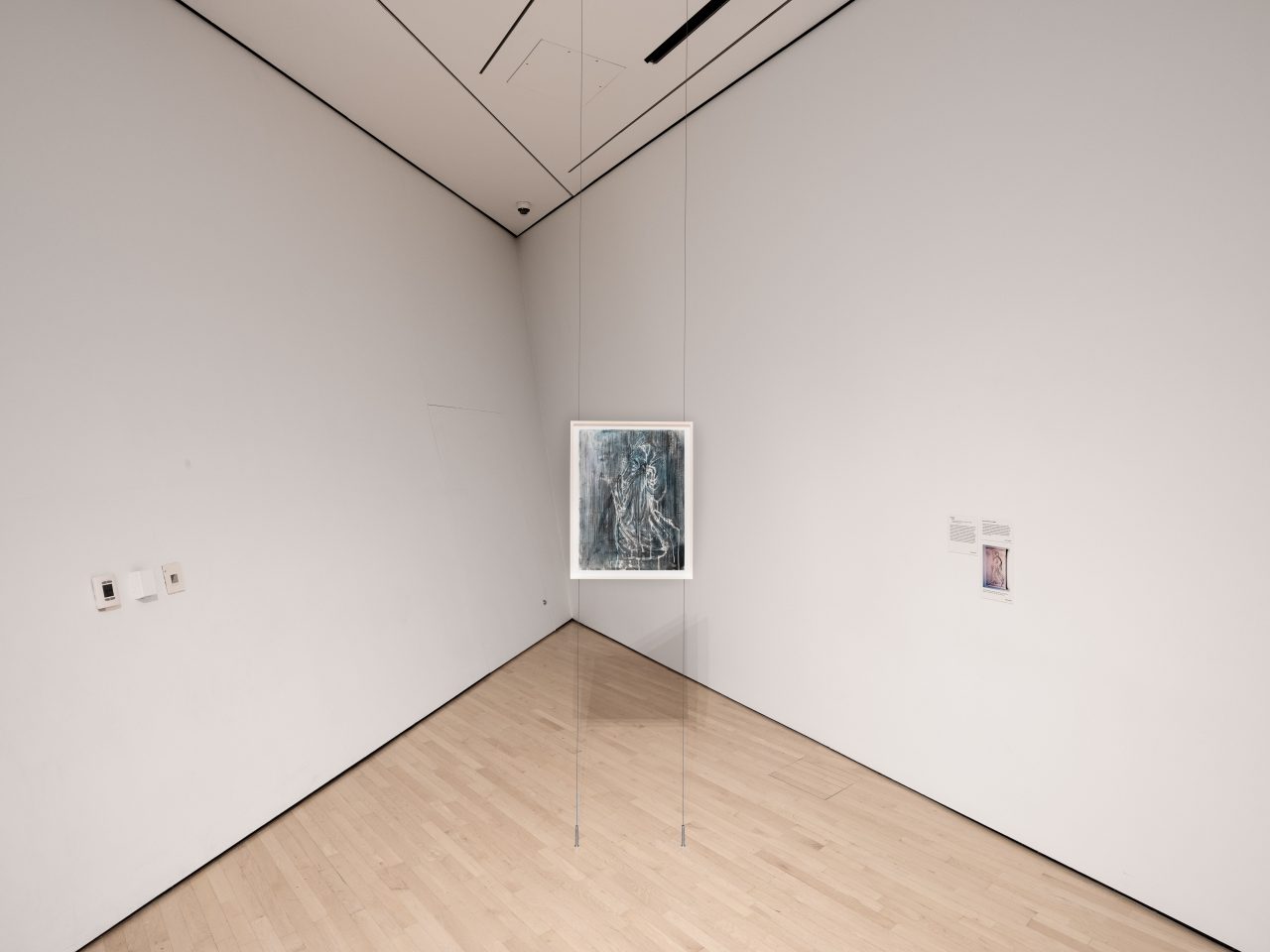
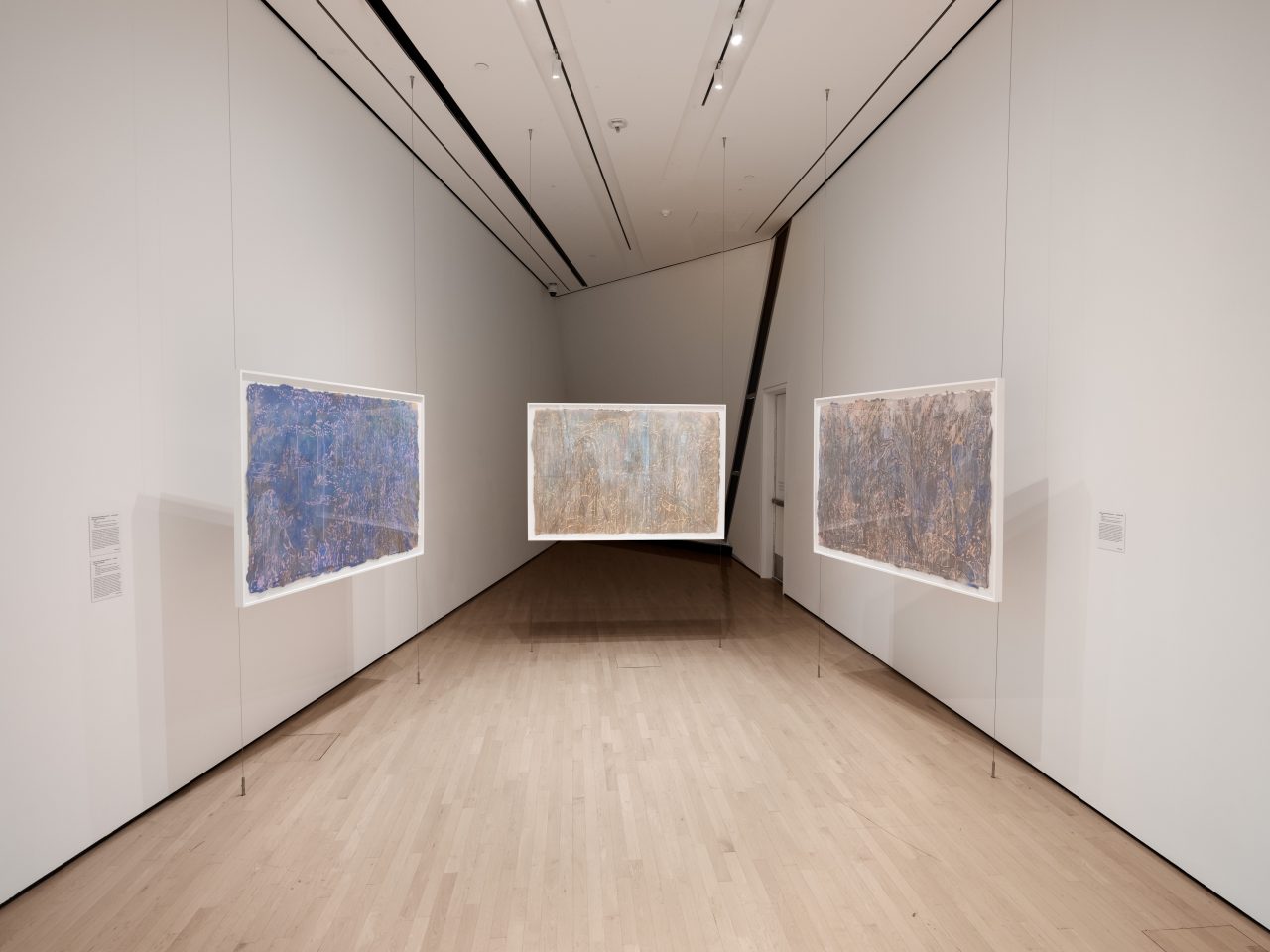
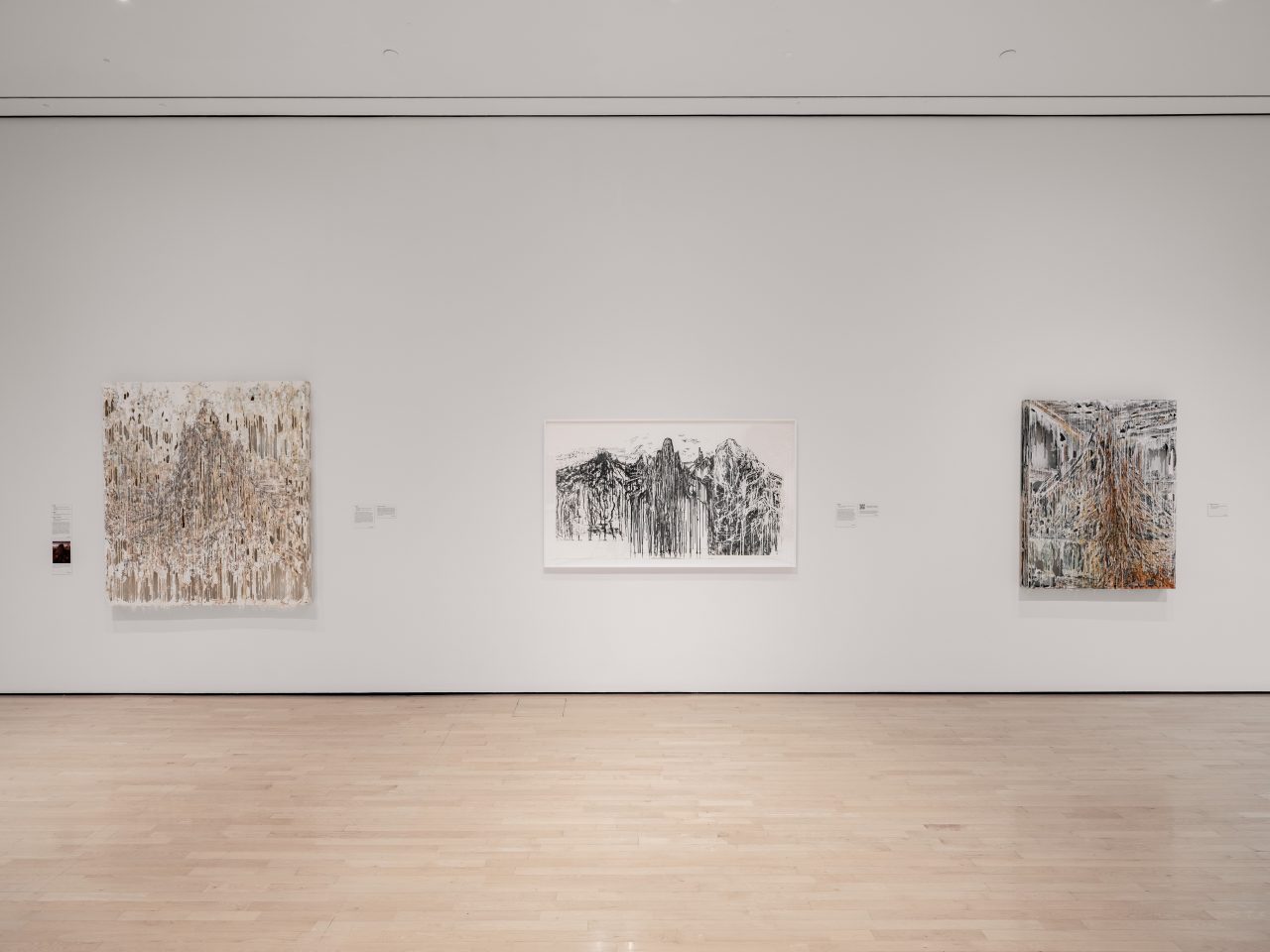
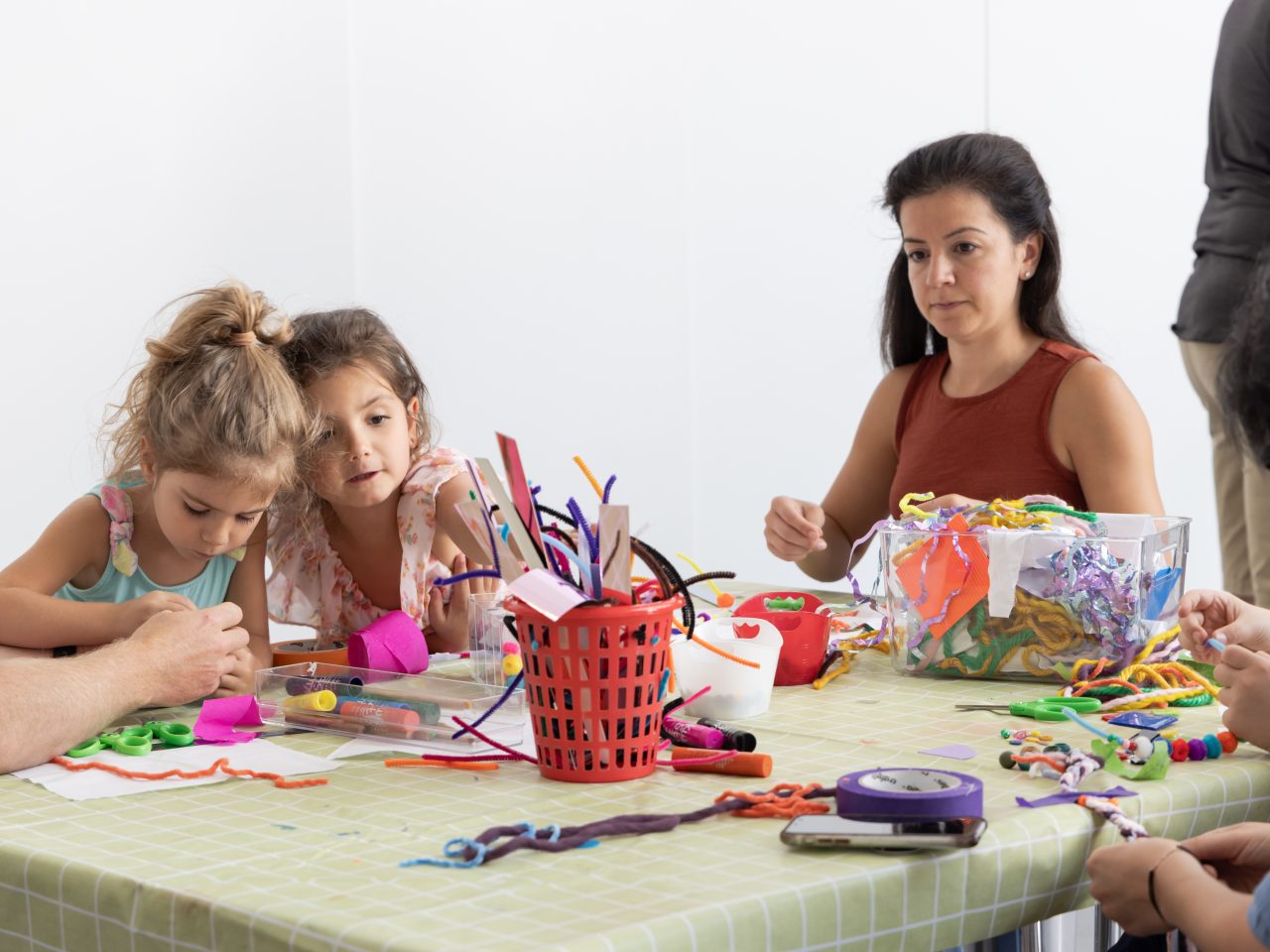 Family Day: UNDO
Family Day: UNDO Fall Opening Party
Fall Opening Party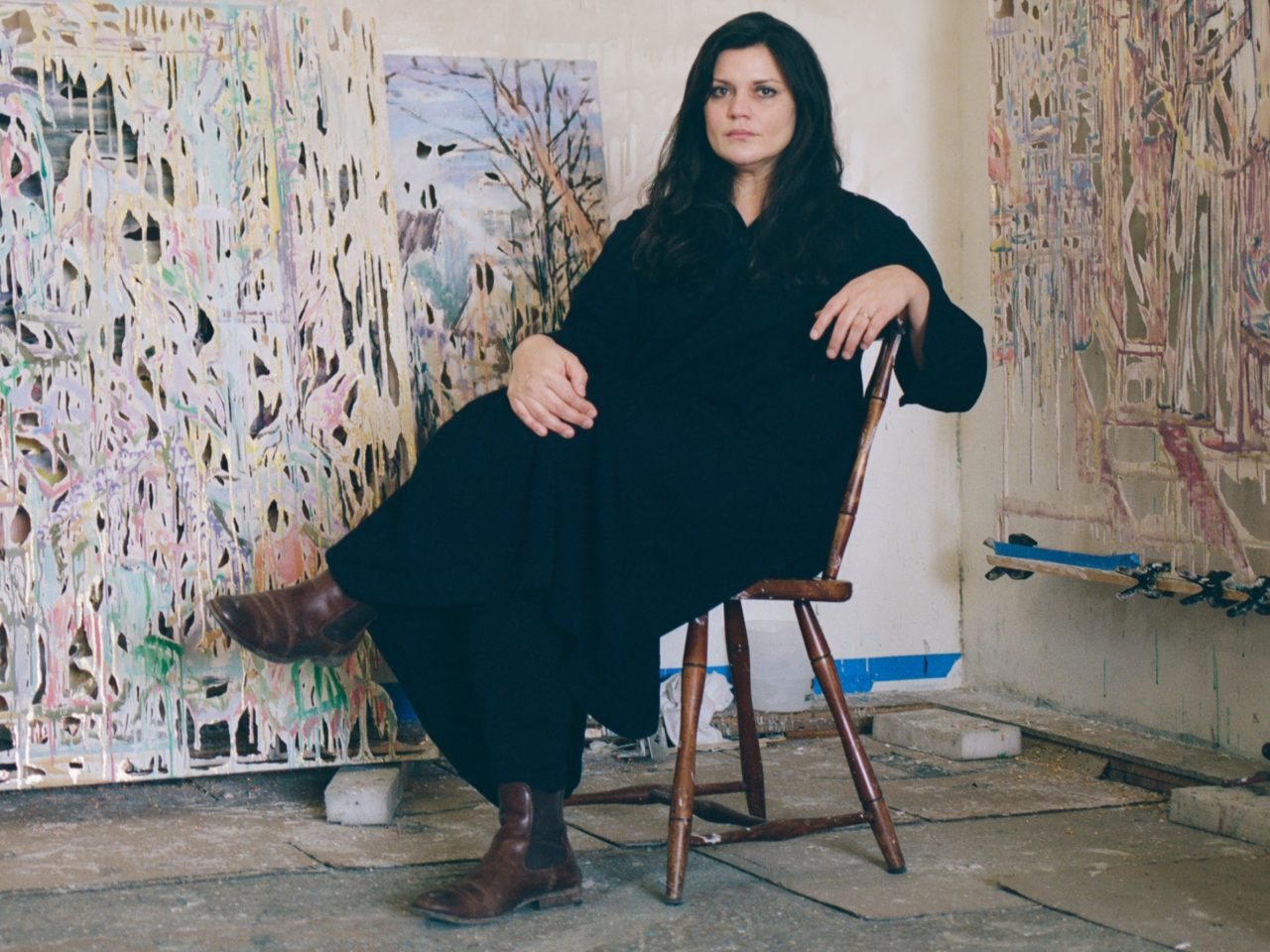 Artist Talk: Diana Al-Hadid
Artist Talk: Diana Al-Hadid Family Day: DRIP
Family Day: DRIP